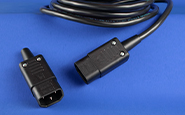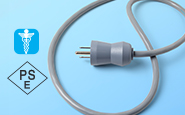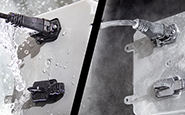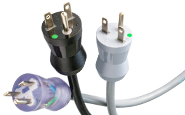Interpower’s Answers to Commonly Asked Questions— Why an Overcurrent Protector is Still Needed with a UK Plug
 At the Interpower Group of Companies, we have real people answering the phones. No recorded messages. As a result, we receive a number of interesting product design questions. Usually if a question has been asked by one person, it means that others also have the same question. So to assist you, we will be sharing a few of the commonly asked questions, complete with answers. Be sure to follow our series, “Interpower’s Answers to Commonly Asked Questions.”
At the Interpower Group of Companies, we have real people answering the phones. No recorded messages. As a result, we receive a number of interesting product design questions. Usually if a question has been asked by one person, it means that others also have the same question. So to assist you, we will be sharing a few of the commonly asked questions, complete with answers. Be sure to follow our series, “Interpower’s Answers to Commonly Asked Questions.”
Question:
Why would I still need an overcurrent protector for my equipment that I am sending to the United Kingdom, since that plug already has a fuse in it?
Key Points:
- United Kingdom plug
- Overcurrent protection
Answer:
Original equipment manufacturers routinely ask why their equipment would still need a circuit breaker or fuse given that the United Kingdom plug has a fuse. Ron Barnett, Product Development Manager, explains why an overcurrent protector for equipment when using the UK plug is still needed.
“Technically, the fuse in the plug is designed to protect the cable between the plug and the equipment in the case of a sudden short circuit. The key objective is to prevent the cable from overheating and causing a fire. If the equipment is connected to a UK Ring Main system, that sudden short circuit is sourced from two directions which can delay how soon the building’s miniature circuit breaker or fuse can clear the fault,” Barnett said.
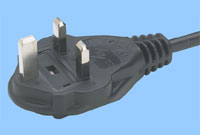 “Overcurrent protection in equipment is not just for sudden short circuits but also for situations where equipment for various reasons draws more current than it is designed to handle. One example is a power strip with a UK fused plug. Such a power strip could have too many devices connected to it resulting in an overcurrent situation which the plug fuse may allow to continue to occur for a given amount of time,” he explains. “UK plugs use BS 1362 fuses which are not highly sensitive to overload currents and in fact will operate for half an hour even at 1.6 times the rated current. Their primary purpose is to protect against short circuit currents.”
“Overcurrent protection in equipment is not just for sudden short circuits but also for situations where equipment for various reasons draws more current than it is designed to handle. One example is a power strip with a UK fused plug. Such a power strip could have too many devices connected to it resulting in an overcurrent situation which the plug fuse may allow to continue to occur for a given amount of time,” he explains. “UK plugs use BS 1362 fuses which are not highly sensitive to overload currents and in fact will operate for half an hour even at 1.6 times the rated current. Their primary purpose is to protect against short circuit currents.”
The United Kingdom is the only country that requires a fused power plug. In addition to a traditional radial circuit (where cable terminates at the last outlet), a ring mains system is commonly used in homes and buildings in the UK. Circuits leave the local branch protection device, travel out to the loads (such as outlets or lamps), and then return to the circuit protection device. The fuse in the UK plug helps to minimize safety hazards associated with the ring mains system.
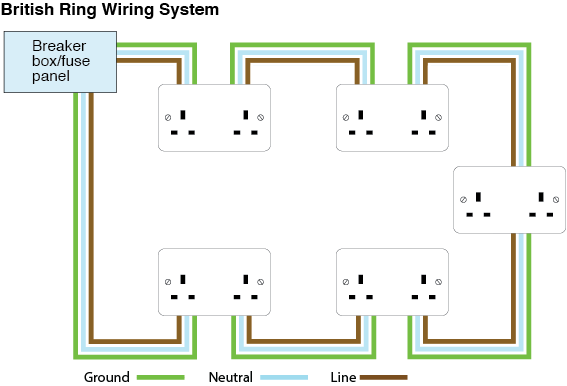
A fault condition at an outlet, for example, will be sourced with current from both directions. This minimizes the amount of heat generated in the conductor, as the fault condition occurs, but before the circuit protection device can clear the fault. By minimizing the heat generated, the degradation of insulation (which accompanies overheating due to repeated fault conditions) is also diminished, improving the long-term safety of the insulation system.
Until the circuit protection device clears the fault, however, the fault condition is sourced from two different directions in the supply system. There is, therefore, a much greater potential fault current condition. The secondary protection device at the plug minimizes the safety hazard this condition creates; hence the power plug fuse.
If you have other questions, Interpower offers free technical support. You can check the website at www.interpower.com, e-mail sales@interpower.com (United States) or uk@interpower.com (United Kingdom) or contact Customer Service in the United States at (800) 662-2290 or in the United Kingdom at +44 (0)1908 295300.
If you have ideas for future InfoPower blogs, please e-mail infopower@interpower.com.


